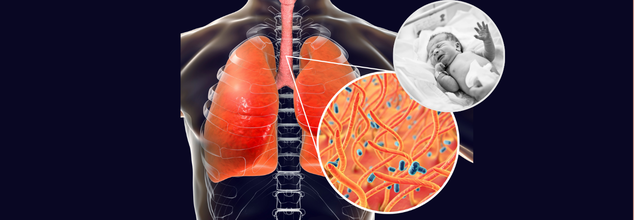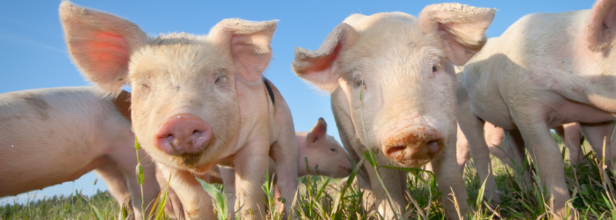
Whooping Cough Kills Two Infants In Louisiana As Vaccination Rates Drop
Whooping cough is making an alarming comeback in the United States, with cases spiking to their highest level in over a decade. As of mid-December, preliminary data from the US Centers for Disease Control and Prevention (CDC) reveals more than 32,000 cases of pertussis reported nationwide—nearly six times higher than the same period last year. The outbreak is causing alarm among health authorities as the highly contagious bacterial disease, once largely subdued by vaccination, returns with vigor.
Often mistaken in its early phases for a common cold, whooping cough may progress to bout after bout of violent coughing that induces vomiting, broken ribs, and an iconic gasping "whoop" for air. The illness can persist for weeks or even months, and sometimes individuals unknowingly spread it. With rising transmission and infants being particularly susceptible, the surge is also triggering new concerns about vaccine resistance and routine immunization coverage gaps.
Two infants in Louisiana have died of pertussis—also known as whooping cough—making it the first such deaths in the state since 2018. These fatalities are part of an overall national increase in cases of pertussis, triggering fresh alarm among pediatric professionals and public health officials about declining rates of vaccination and waning immunity.
Pertussis is a highly infectious respiratory infection caused by the Bordetella pertussis bacterium. It is identified by persistent fits of coughing that usually culminate in a characteristic "whooping" sound as the patient struggles to catch his or her breath. Though the disease infects individuals of all ages, it is particularly hazardous for babies too young to be vaccinated.
For babies, it's actually pretty scary," CNN quoted Dr. John Schieffelin, Associate Professor of Pediatrics at Tulane University.
“They’re just coughing so much, they can’t eat, they can’t drink, and they often get pneumonia, which means we have to put them on a ventilator… they just never stop coughing.” With two decades of experience in pediatric infectious diseases, Dr. Schieffelin asserts that no other illness compares to the suffering pertussis causes in the youngest patients. Surging Numbers: The Return of a Supposedly Controlled Disease
Louisiana reported 110 cases of pertussis through the first quarter of 2025 alone, almost reaching the total 154 cases for the entire year 2024. National trends have an even more ominous course. In 2024, the United States had more than 35,000 cases of pertussis—its highest rate in more than a decade—that resulted in 10 deaths, six of whom were infants younger than one year.
This year, 2025, is looking to be even worse, with already 6,600 cases reported—almost four times the number reported at this time last year.
The United States previously reported over 200,000 cases of whooping cough per year prior to the availability of the pertussis vaccine. As the DTaP vaccine (diphtheria, tetanus, acellular pertussis) became widespread during the late 1940s, illness plummeted. Pertussis started seeping back into the United States in the 1980s due to enhanced surveillance and declining vaccine-induced immunity.
The CDC advises a five-dose series of the DTaP vaccine in children, starting at two months of age and continuing up to age six. Teenagers should have a booster (Tdap) between ages 11 and 12, and adults are encouraged to receive a Tdap booster every 10 years.
For newborns too young to be vaccinated, maternal immunization during the third trimester of pregnancy is crucial. This practice offers passive immunity to the infant, avertinh 78% of cases and decreasing the hazard of hospitalization by 91%, states the CDC. A second protective method is "cocooning," in which all members of the household are vaccinated to protect the infant from transmission.
The increase in cases of pertussis has come at the same time as a troubling drop in childhood vaccination coverage. The rate of US kindergartners vaccinated with the DTaP series has fallen steadily over the last five years, leaving thousands at risk.
In Louisiana, where the latest infant deaths occurred, access to healthcare is another pressing challenge. “Especially in a state like Louisiana, we’ve got a lot of poverty. We’ve got a lot of rural populations, and not everyone has access to regular medical care,” said Dr. Jennifer Herricks, founder of the nonprofit Louisiana Families for Vaccines.
Dr. Herricks and other health advocates contend that such systemic obstacles, combined with increasing vaccine reluctance, render state efforts to encourage immunization all the more vital. But in a contentious decision, the Louisiana Department of Health recently stated it would no longer encourage mass vaccination at community events and health fairs.
In a memo, Louisiana Surgeon General Dr. Ralph Abraham made clear that although the state still supports routine childhood immunizations, it will no longer encourage seasonal vaccines like COVID-19 and flu at mass clinics. But some local health officials are concerned this change in approach sends a confusing message.
"When you cast dispersions or make a question regarding the safety and effectiveness of a single vaccine, I think that it actually ends up having this ripple effect across all vaccines," said Dr. Jennifer Avegno, Health Department Director for New Orleans. Although she lauded the recent messaging by the Department of Health regarding pertussis, she wondered if outreach was sufficient. "It's perhaps too little, too late."
While the country grapples with this comeback, experts emphasize that vaccination is the best means to avoid pertussis outbreaks and save lives—particularly among the most vulnerable. Beyond early childhood immunizations, adult booster doses and maternal vaccination during pregnancy are key measures.
Dr. Schieffelin stresses the importance of communities coming together to work toward the protection of infants. "We have to think not just about ourselves, but about the people around us—particularly babies who can't yet get vaccinated. That's what community immunity is all about."
With over 6,000 cases already this year and numbers rising, the stakes are high. Public health officials, parents, and policymakers all must move quickly to rebuild trust in vaccines, increase access to care, and protect future generations from this preventable and fatal disease.

Credits: Canva
Know All About The Recently Approved Landmark Breast Cancer Drug In UK
Breast cancer is one of the most common cancers in the world, affecting millions of women every year. It begins when cells in the breast grow uncontrollably, often forming a lump or mass. There are several types of breast cancer, classified based on the presence or absence of hormone receptors or certain proteins that influence cell growth.
One of the most common forms is HR-positive, HER2-negative breast cancer. “HR-positive” means the cancer cells grow in response to hormones like estrogen or progesterone, while “HER2-negative” indicates the cancer does not produce excess amounts of the HER2 protein. This subtype accounts for a significant percentage of breast cancer cases and can be difficult to treat, especially in advanced stages when it spreads beyond the breast to other parts of the body.
A Landmark Moment: Capivasertib Approved for NHS Use
In a major step forward, a new drug named capivasertib has been approved for use in the UK’s National Health Service (NHS). Developed by pharmaceutical company AstraZeneca, the drug is also marketed as Truqap. This oral medication offers fresh hope to patients battling incurable forms of breast cancer, particularly those with specific genetic mutations.
The approval by the National Institute for Health and Care Excellence (NICE) has been hailed as a “landmark moment” by researchers. According to NICE, more than 1,000 women each year with HR-positive, HER2-negative breast cancer in advanced stages could benefit from this new treatment.
How Does the Drug Work?
Capivasertib is taken as a twice-daily pill, in combination with the hormone therapy fulvestrant. The drug works by blocking an abnormal protein—a part of the cancer cell’s signaling system—that tells the cells to multiply. By disrupting this signal, capivasertib slows or halts the progression of the disease.
In a clinical trial, the combination of capivasertib and fulvestrant was shown to delay cancer progression by approximately 4.2 months compared to patients who received a placebo and fulvestrant. This delay in disease progression could mean more time before needing chemotherapy and its often difficult side effects.
The Role of Genetic Mutations
About half of the patients with this form of breast cancer have mutations in certain genes, which make them more likely to respond to capivasertib. These mutations can be detected through genetic testing, which helps doctors decide the most effective course of treatment for individual patients.
How to Get Checked?
Early diagnosis remains key in managing breast cancer. Women are advised to regularly perform self-exams, attend routine screenings such as mammograms, and report any unusual symptoms to a doctor. For those diagnosed with HR-positive, HER2-negative cancer, genetic testing may be recommended to check for mutations that would qualify them for treatment with capivasertib.
A Decade-Long Research Journey
The approval of capivasertib is the result of decades of research by scientists at the Institute of Cancer Research (ICR) in London. Kristian Helin, CEO of ICR, called the development a “triumph,” noting the drug’s potential to improve treatment outcomes for many patients.
As of 2020, over 40,000 people were diagnosed with breast cancer in the UK, with nearly 15% already at advanced stages. For them, this drug could represent both hope and more time.

Credits: Canva and Gilbert Carrasquillo
Against Experts' Concerns, HHS Releases A New Autism Study
The US Department of Health and Human Services (HHS) is now preparing a large-scale research initiative which will look at understanding the causes of autism. This announcement came from Secretary, Robert F Kennedy Jr. on Thursday after a Cabinet meeting with President Donald Trump.
What Will This New Research Do?
According to Kennedy, the HHS project will be a “massive testing and research effort” involving hundreds of scientists, with the goal of completing the work by September. The effort, however, has sparked immediate concern among scientists, autism advocacy groups, and public health experts, particularly because of Kennedy’s long-standing belief in a debunked theory linking vaccines to autism.
“There’s got to be something artificial out there that’s doing this,” President Trump told Kennedy during the meeting. “If you can come up with that answer, where you stop taking something, eating something, or maybe it’s a shot. But something’s causing it.”
RFK Controversy On Autism And Vaccine
Kennedy's earlier remarks and Trump's comments have already been taken with a pinch of salt, especially when they tried to revive the widely discredited claim that childhood vaccines could in fact cause autism. This theory originated in a 1998 study published in The Lancet, which falsely linked the MMR (measles, mumps, and rubella) vaccine to autism. The study was later retracted due to unethical practices and flawed data. Its lead author lost his medical license.
Despite overwhelming evidence disproving the vaccine-autism link, Kennedy has continued to promote it. During the Cabinet meeting, he restated his position:
“I saw my children get sick after getting vaccinated, and I’ve heard thousands of parents say the same. It’s time we take a serious look. This study is going to find out if something we’re doing—maybe the vaccines—is behind the autism epidemic.”
His statement was met with mixed reactions, especially from medical experts and autism advocates.
What Does Science Really Say?
Decades of research have failed to show any credible link between vaccines and autism. Major public health institutions—including the Centers for Disease Control and Prevention (CDC), the World Health Organization (WHO), the American Academy of Pediatrics, and advocacy groups like Autism Speaks—have all concluded that vaccines do not cause autism.
Autism, a developmental condition affecting communication, behavior, and learning, has more scientifically established risk factors. These include:
- Genetic influences, which are the most significant contributors
- Environmental exposures such as air pollution and pesticides
- Low birth weight or premature birth
- Parental age, with older parents being more likely to have children with autism
The National Institutes of Health (NIH) already invests over $300 million annually in autism research, focusing on early detection, interventions, and understanding underlying causes. It remains unclear how Kennedy’s study will differ or whether it will duplicate ongoing efforts.
What Do The Experts Say?
The Autism Society of America and other groups have raised concerns over the new initiative. “There is a deep concern that we are going backward and evaluating debunked theories,” said Kristyn Roth, a spokesperson for the Autism Society. She also noted that their organization had not been consulted in any part of the study’s planning.
Another source of controversy is Kennedy’s choice to appoint Dr. David Geier, an orthopedic surgeon who has long claimed a link between vaccines and autism, to lead the study. In 2011, Maryland authorities found Geier was practicing medicine without a license.

Credits: Canva
Alabama Woman Lives 130 Days with Pig Kidney, Undergoes Removal After Organ Rejection
In one of the most significant moments in the history of xenotransplantation, Towana Looney, a 54-year-old woman from Alabama became the first human to live for 130 days with a gene-edited pig kidney. Her journey has now ended with the organ's removal, but it yet remains an essential landmark in the field of medicine, especially in the search for viable animal-to-human transplants.
What Actually Happened That Led To The Xenotransplantation?
Towana Looney underwent the groundbreaking surgery on November 25, 2023, at NYU Langone Health. She had been on dialysis since 2016 and was ineligible for a human kidney transplant due to her immune system being highly sensitized, meaning it would likely reject a human organ. As a result, she volunteered to participate in an experimental xenotransplant procedure using a genetically modified pig kidney.
The transplant initially worked well. Looney even referred to herself as “superwoman,” noting that she felt better than she had in years. However, on April 4, 2024, after more than four months, her body began rejecting the organ, and doctors decided to remove it. She is now back on dialysis and recovering at home in Gadsden, Alabama.
Why Was The Pig Kidney Removed?
The decision made to remove the kidney came from the safety concerns as she developed an infection, which had been tied to her earlier dialysis treatment. It required doctors to reduce her immune-suppressing medicines. Around the same time, her immune system began reactivating, possibly triggering the rejection. Rather than risking a stronger dose of anti-rejection drugs—which could have caused further complications—her doctors chose to remove the kidney.
“We did the safe thing,” said Dr. Robert Montgomery, Looney’s surgeon and a leading figure in xenotransplantation. He emphasized that Looney wasn’t worse off than she had been before the transplant and, in fact, had benefited from 130 days free of dialysis.
ALSO READ: After Pig Kidney Transplants, Scientists May Have Found A Way To Transplant Pig Livers
What Is Xenotransplantation?
Xenotransplantation is the process of transplanting organs or tissues between different species—in this case, from pigs to humans. Scientists are modifying pigs so their organs resemble human ones more closely, in hopes of addressing the severe shortage of donor organs.
Currently, more than 100,000 people in the U.S. are waiting for organ transplants, the majority needing kidneys. Thousands die every year waiting. If successful, pig organs could help close this gap.
Looney’s case is part of a broader effort to test pig organ viability in people who are not terminally ill. Previously, four other U.S. patients had received pig organs—two hearts and two kidneys—but none of those organs lasted longer than two months, and all recipients eventually died due to pre-existing health issues.
What Is Going To Happen Next?
Despite the setback, researchers are hopeful. In fact, the news is that a man in New Hampshire who received a pig kidney in January is doing well. More clinical trials are also expected to begin this summer to give a better answer on where we stand with xenotransplantation. Chinese researchers have also reported success with a recent pig kidney transplant.
One of the major ongoing challenges is determining the right combination of immune-suppressing drugs to prevent different types of organ rejection without increasing infection risk. As Dr. Tatsuo Kawai from Massachusetts General Hospital noted, “When we have more experience, we’ll know what kind of immunosuppression is really necessary for xenotransplant.”
© 2024 Bennett, Coleman & Company Limited

